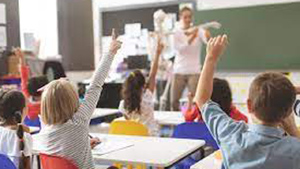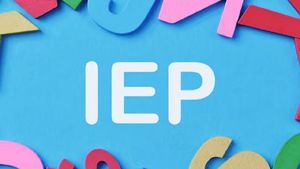Special education is a tailored approach to learning that provides individualized support and resources for students with diverse needs. It encompasses a wide range of learning differences, from intellectual disabilities to physical impairments. In these specialized programs, educators and related service professionals work collaboratively to design and implement personalized strategies that promote academic, social, and emotional growth.
The goal of special education is to empower students to overcome obstacles, develop essential skills, and become independent and self-confident individuals. By emphasizing individual strengths and providing the necessary tools, special education helps students unlock their full potential and pave the way for a successful future.

Image by hearinglikeme
Definition of Special Education
Special education refers to the educational programs and services designed to meet the unique needs of students with disabilities. It is a comprehensive approach that goes beyond the traditional classroom setting and focuses on individualized instruction and support. Special education recognizes that students with disabilities require specialized teaching methods, accommodations, and assistive technology to access education in an inclusive environment. It aims to provide students with the necessary tools and resources to succeed academically, socially, and emotionally.
Importance of Special Education
Special education plays a crucial role in ensuring that every child has an equal opportunity to learn and succeed. It recognizes and addresses the diverse learning needs of students with disabilities, enabling them to reach their full potential. Without special education, many students would struggle to access education and face significant barriers to their overall development. By providing tailored instruction, individualized support, and necessary accommodations, special education helps bridge the gap and create a level playing field for all students.
Laws and Regulations for Special Education
Special education is not just a concept; it is backed by laws and regulations that protect the rights of students with disabilities. In the United States, the Individuals with Disabilities Education Act (IDEA) is a federal law that ensures students with disabilities receive a free and appropriate public education.
IDEA mandates that students with disabilities have access to special education services and supports, including evaluations, individualized education programs (IEPs), and related services such as speech therapy and occupational therapy. These laws provide a legal framework to ensure that students with disabilities are not denied their right to education.
Common Disabilities and Disorders in Special Education
Special education encompasses a wide range of disabilities and disorders. Some common disabilities include autism spectrum disorder (ASD), intellectual disabilities, specific learning disabilities, emotional and behavioral disorders, and physical impairments. Each disability presents unique challenges and requires specialized interventions and support.
Students with autism, for example, may benefit from visual supports and social skills training, while students with intellectual disabilities may require modified curriculum and individualized instruction. Understanding the different disabilities and disorders is crucial for designing effective special education programs that meet the specific needs of each student.
Special Education Services and Supports
Special education offers a variety of services and supports to address the individual needs of students with disabilities. These services can include specialized instruction, assistive technology, speech and language therapy, occupational therapy, physical therapy, counseling, and social skills training. The specific services provided depend on the unique needs of the student and are outlined in their IEP.
Special education professionals, such as special education teachers, speech-language pathologists, and occupational therapists, collaborate to deliver these services and supports, ensuring that students receive the necessary interventions to succeed.
Individualized Education Programs (IEPs)
One of the key components of special education is the development of an Individualized Education Program (IEP) for each student with a disability. An IEP is a legally binding document that outlines the student’s present levels of performance, goals, accommodations, modifications, and services. It is created through a collaborative process involving parents, teachers, related service professionals, and the student (when appropriate).
The IEP ensures that the student’s educational needs are met and serves as a roadmap for their educational journey. Regular progress monitoring and IEP meetings are conducted to review and update the plan as needed.
Inclusive Education and Mainstreaming
Inclusive education is an important aspect of special education that promotes the integration of students with disabilities into the general education environment. It emphasizes the importance of creating inclusive classrooms where students with disabilities can learn alongside their non-disabled peers. Inclusion provides opportunities for social interaction, peer learning, and a sense of belonging.
Mainstreaming is another approach that involves placing students with disabilities in regular education classrooms for part or all of the day, while still receiving necessary support services. Both inclusive education and mainstreaming aim to provide students with disabilities equal access to education and foster a sense of acceptance and diversity within the school community.
Roles and Responsibilities of Special Education Professionals
Special education professionals play a crucial role in the success of students with disabilities. They include special education teachers, speech-language pathologists, occupational therapists, school psychologists, and other related service professionals. These professionals collaborate with general education teachers, parents, and administrators to develop and implement individualized strategies that meet the unique needs of each student.
They provide direct instruction, assess student progress, adapt curriculum, modify instructional methods, and ensure that the necessary accommodations and supports are in place. Special education professionals are advocates for students with disabilities and work tirelessly to create inclusive and supportive learning environments.
Challenges and Controversies in Special Education
While special education has made significant progress in ensuring the rights and inclusion of students with disabilities, there are still challenges and controversies that need to be addressed. One challenge is the overrepresentation of certain minority groups, such as African American and Hispanic students, in special education programs. This raises concerns about bias in the identification and placement process. Another challenge is the lack of resources and funding for special education, which can limit the ability to provide quality services and support.
Controversies also arise around issues such as the use of restraint and seclusion, the inclusion of students with severe disabilities in general education classrooms, and the appropriate balance between academic and functional skills instruction. Addressing these challenges and controversies is essential for continuously improving special education practices and ensuring equitable access to education for all students.
Future of Special Education
Special education has come a long way in recognizing and addressing the unique needs of students with disabilities. However, there is still work to be done to ensure that every child receives an inclusive and quality education. The future of special education lies in continued advocacy, research, and collaboration among educators, policymakers, and families.
It involves finding innovative solutions, leveraging technology, and promoting best practices to enhance the educational experiences of students with disabilities. With a strong commitment to inclusivity, equity, and individualized support, special education can continue to empower students, break down barriers, and create a brighter future for all.




